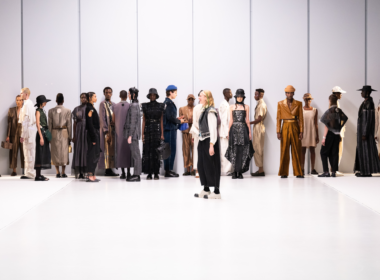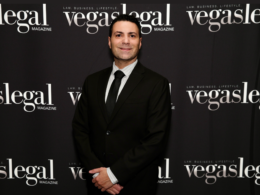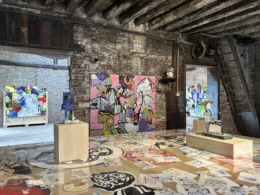Exploring Life’s Depths through Literature and Public Speaking
In this compelling interview with Sarah Udoh-Grossfurthner, author of the thought-provoking book “BUT HE CALLS ME BLESSED: When the Unbelievable Happens to Believers,” we delve into the profound experiences that inspired her to craft this impactful work. Sarah shares a deeply personal journey sparked by a family crisis, leading to a profound exploration of faith and resilience in the face of adversity.
Her perspective on stereotypical portrayals of black characters in media sheds light on the importance of authentic representation. As a mother of two, Sarah also shares insights into balancing family life and her writing career, highlighting the importance of knowing oneself as a source of strength. This interview offers a glimpse into the life and mind of a passionate writer, speaker, and advocate whose stories have the power to move and transform.
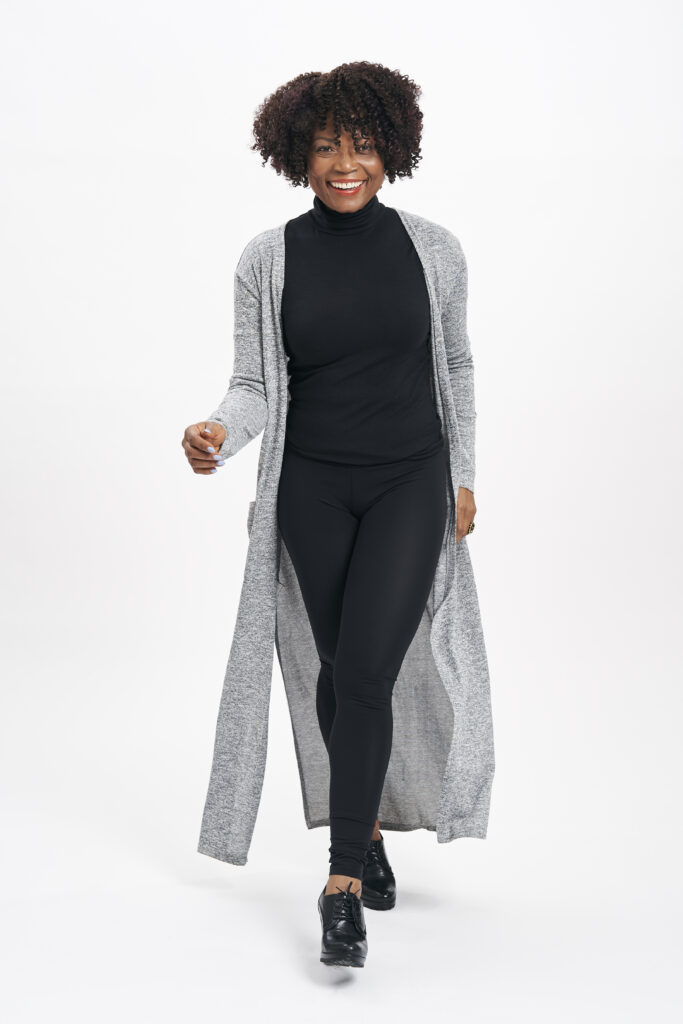
Sarah Udoh-Grossfurthner: Faith, Resilience, and the Power of Stories
Sarah Udoh-Grossfurthner: Although I did not talk about it in the book itself, the book came about as a result of a family crisis. A close family member had passed away suddenly; before his death, his wife and I used to talk a lot about faith and the importance of faith. And then, her husband went to work, and news came in the evening that something had happened to him. He had passed away in a terrible motor accident. It was such a shock, and when I heard it, I didn’t know what I was going to say to her.
We always spoke of faith—about the loving kindness, protective power, and faithfulness of God. But now I had to comfort her, and I didn’t know what to say to someone like that. Every time I thought of something, I would discard it because it just wasn’t appropriate. When I to the church on the day of his burial, I was completely blown away when she said “I know that God loves us and he’s going to take care of me and my kids; he did not do this to punish me”. I was humbled. How do you have that kind of faith in the midst of something so tragic? She could still pronounce the love of God in the midst of something so terrible.
I was doing my master program in professional writing at that time and had been contemplating what my thesis would be. But right there, when she spoke about God and her belief still in his love I knew what it was going to be. The idea started percolating in my mind. The title that came to me was “But He Calls Me Blessed!” The title has an exclamation mark, so it’s not a statement: “But He Calls Me Blessed!” If God calls me blessed, then how can something like this happen to me? I started researching. I put out flyers saying that I wanted to speak to people who had gone through terrible experiences in their lives and still had faith. I wanted to know what kept them believing in God and the love of God in spite of their tragic experiences. What I found was incredible.
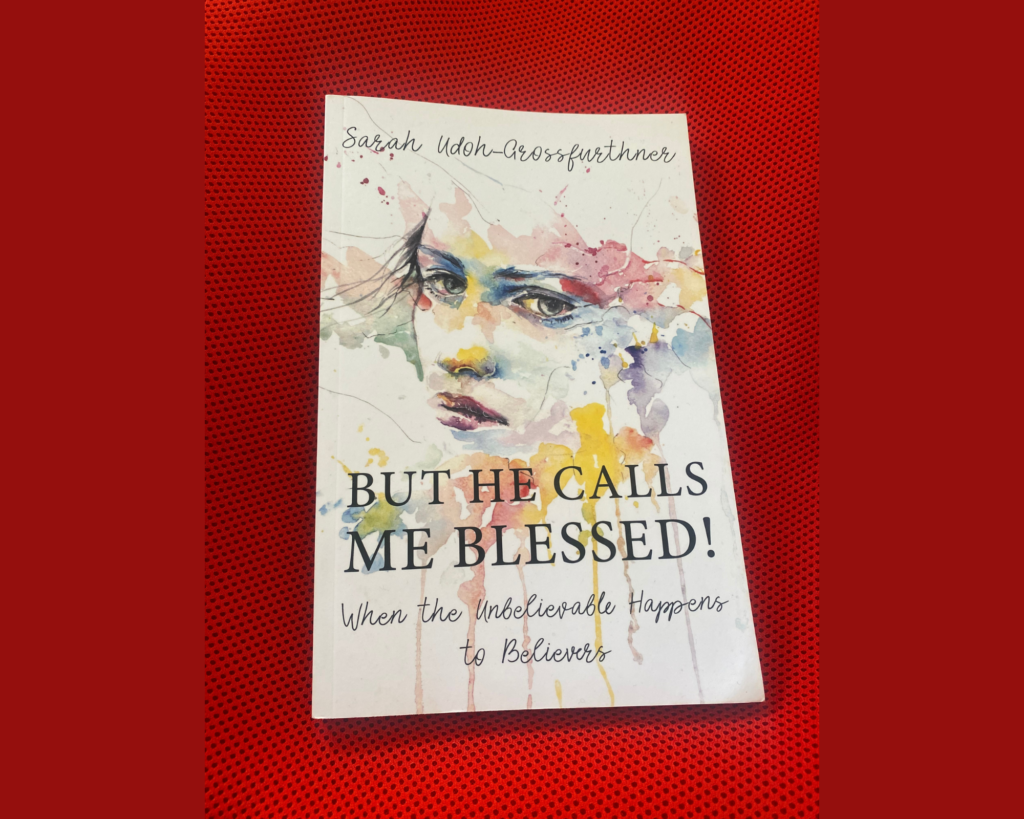
There are so many people out there with incredible faith. I came back from it very humbled. I
realised that to certain people, experiencing hardship solidifies their faith. Thing is, it is easy to say you have faith when things are working fine for you, but can you still have that faith when things are not as you like them to be, especially when it involves something as tragic as losing a loved one?
FAB: Your literary works span a diverse range of genres and themes, exploring the depths of human emotions and experiences. What’s your creative process like?
Sarah Udoh-Grossfurthner: I like to think sometimes that you’re either born with it or not. When you’re born with it, you just know somehow that you’re inclined towards a certain area of specialisation. There are people who love kids and love to teach, and there are people who love nursing and taking care of people. For me, I always loved reading. In fact, when I was growing up, I got into so much trouble because I would go under the bed to read with a candle. I was living with my uncle and his family at the time, and I knew I would get into trouble if they caught me, but that didn’t stop me. I was reading with an open flame under the bed, surrounded by all kinds of dry things that could make things go up in flames at the slightest mistake. I was an avid reader; I had so much passion for books. It was so intense I would daydream sometimes. You could not see me without a book. It didn’t matter what the book was; as long as you could read it, I did, even when I did not sometimes understand what I was reading. The writing process sort of evolved from that.
And so, when you talk about the creative process, I would say it has always been with me. Of
course, anything that you have a passion for, you have to develop it. Raw talent is like unpolished diamond: you know it is valuable, but for the real value to be fully realised you still have to cut and polish it.
My writing development came about in a strange way. I was doing an MBA with The Open University, and we were asked to write an essay on something. I guess my piece must have been very impressive because my lecturer thought I had copied it; he thought that I had plagiarised it. He called me into his office and told me that they took plagiarism very seriously and that he expected students to write using their own initiative. I did not know how to defend myself because I knew he wasn’t going to believe me. I simply looked at him and told him to pick any object in his office, and I would write a story around it right there and then. That was how he knew that what I had written was mine.
FAB: How do you decide which form (poetry or prose) best captures the essence of a particular narrative?
Sarah Udoh-Grossfurthner: I wrote something recently on the importance of self-knowledge, saying that you cannot be successful at anything if you do not know yourself. What you know about yourself starts with what you value. You know what your values are, and then those values will form your character. I can write prose and translate it into poetry, and I have actually done that several times because I do ghostwriting for people too. I have had situations where I wrote poems for people who were getting married and they wanted something unique: or rather, I wanted to give them something unique as a wedding gift, so I asked the wife to tell me how she met her husband. I asked the husband to also narrate it from his point of view, and he did. I created a poem out of that. Within the poem itself, it was like two people speaking, not to each other but more like they were both narrating. The poem was read at the wedding by me and a male guest…as representing both the wife and the husband.
When you have something inside you, it just finds a way to flow out. Writing is basically expressing life from your point of view. When that kind of talent is in you, you just work it. Sometimes, you don’t know how you’ve been able to work it out to bring something out, but somehow you do.
The actions I take are often taken intentionally, with the idea that I am a woman of faith who fears God. Because I believe my wisdom comes from Him, whatever I write comes out great and inspiring in different ways to different people who read it. It’s unbelievable sometimes when I pick up the things I wrote and read them: it sometimes feels as though it was written by someone else. When I sit down to write, I begin by praying, and whatever comes out of me comes out with the power of God leading me. It’s as simple as that. That is my writing process, in a nutshell.
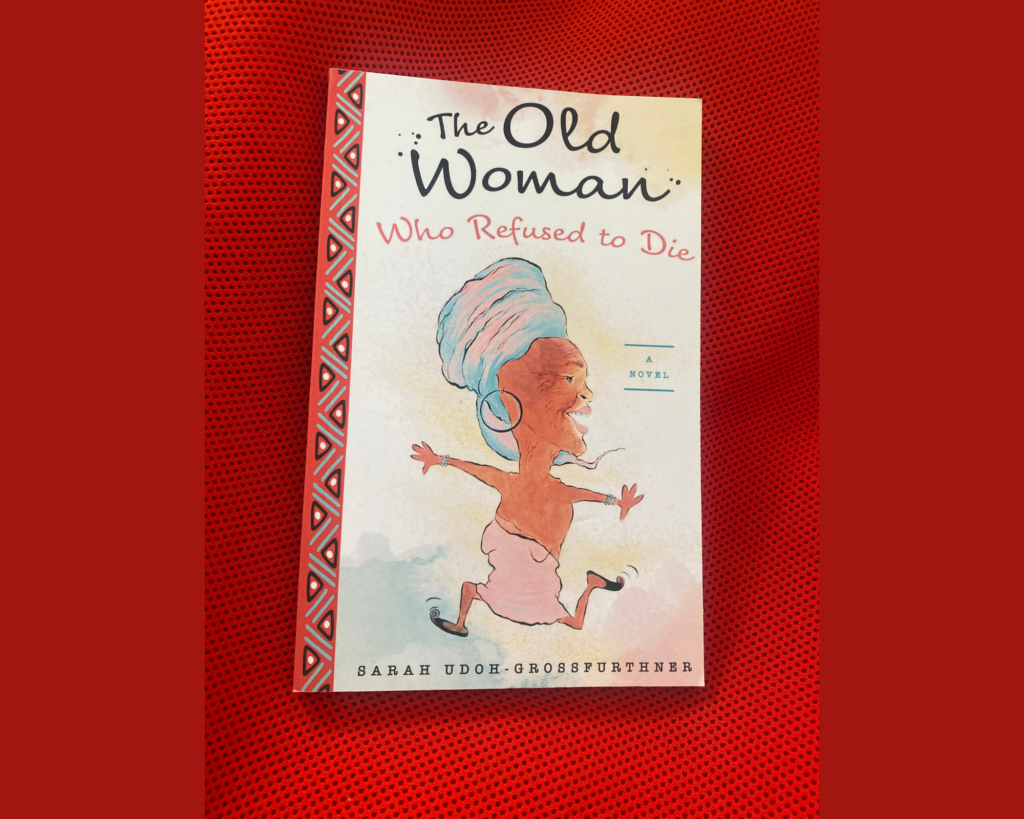
FAB: You have a background in diplomatic studies and a master’s degree in professional writing. How do you see the intersection of diplomacy and storytelling? Is there a way literature can bridge cultural divides and foster dialogue on an international level?
Sarah Udoh-Grossfurthner: One of the things I studied in diplomacy was comparative culture. You start from the
position of religion; you take two religions and compare them, exploring the differences and common factors. The same thing applies to culture. You look at the divide and think we are so different, but we are actually not that different. If you pinch me and it hurts, I cry. If I do the same to you, you’ll hurt and cry. We’re just comparing two things we believe are opposing…but that are actually not.
As for storytelling and the bridging of culture with it. Everyone has a story, every society has a story, these stories are often more similar than we would like to believe, or that we even realise. Which brings us back to the fact that we’re not that different. We both hurt and cry, so how are we really different? Being able to talk about things brings relief to us all, so how are we so different?
So, yes, you can use storytelling to bridge cultures. I see storytelling as a strong tool of tolerance. If I hear your story, then I’ll be able to know where you’re coming from. If an action comes from you that I’m not very happy with, hearing your story would help me understand why you did what you did, even if I do not necessarily agree with it. Hearing your story therefore makes me more tolerant and less judgmental. A win-win situation in a world of increasing crisis.
Challenging Media’s Portrayal of Black Characters
FAB: What’s your take on the stereotypical portrayal of black characters by certain writers, most especially movie scriptwriters?
Sarah Udoh-Grossfurthner: I look at those movies, and I have to shake my head. When you want to make a movie
about people, you should do your research. The people whose story you are trying to bring to the screen can tell you facts so that you don’t have to make assumptions. There are tonnes of black people in Europe that you can ask questions, but there is a tendency by non-African to always assume that that know. Assumptions engender intolerance. Assumptions can divide us hugely. It is one of the biggest ways to create intolerance. You make assumptions about accents and say you’re speaking ‘African’. There’s no such thing as ‘African’ language, except you’re referring to Afrikaans: the language of apartheid: and therefore a language of divide. Don’t say you know you are speaking ‘African’ when you are speaking an African language – specify which of the myriads African languages you are speaking There are lots of African accents. If you’re making a movie about a tribe
in Nigeria, you shouldn’t bring in a South African accent: or something that sounds like an eastern African accent because of your assumptions that all Africans sound alike. It is not just a disservice to the entire continent but an insult. If you are a non-African making a story about Africa and bring in non-African to act the African parts, what makes you think we should rejoice and accept your movie or writing as legit? Why do you assume you know my story better than I do? I look at some of these stories and think, “Could you not find an African actor to play the African part”? Was it so terribly hard, especially when you consider the fact that Nollywood, the Nigerian movie industry alone, is the second fastest growing movie industry in the world?
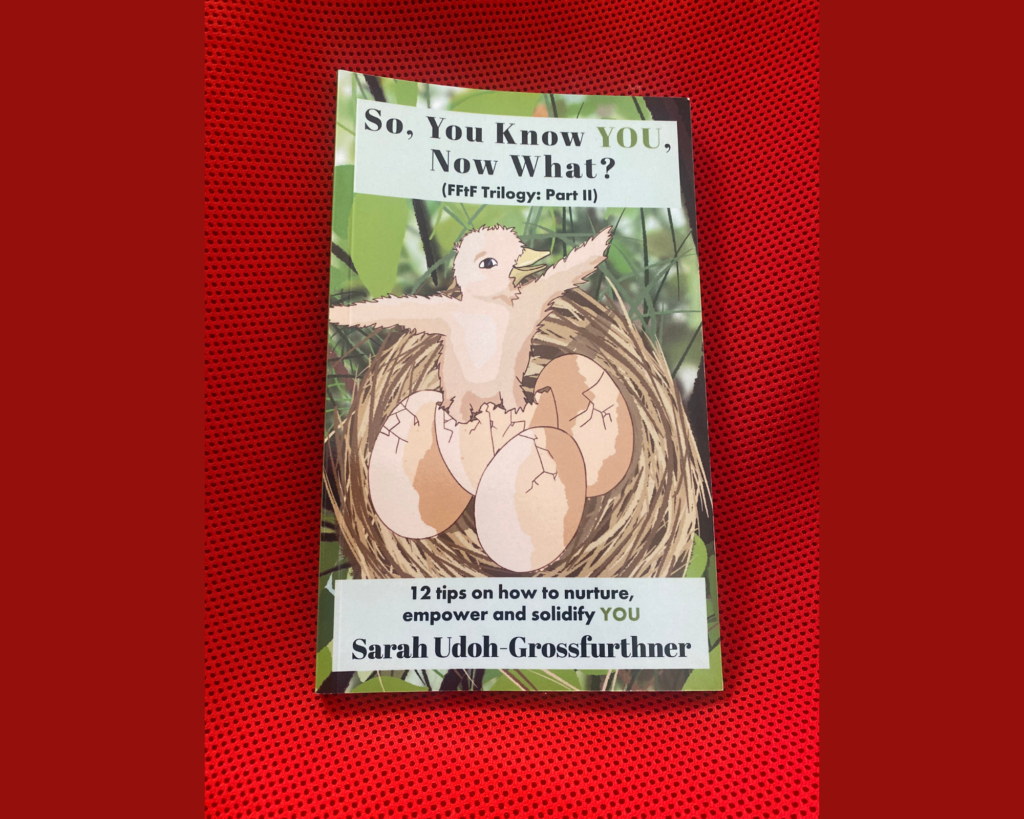
FAB: Your poem “Mirror Image” became the theme song for a breast cancer campaign, shedding light on a critical health issue. What really was going on in your mind when you wrote it?
Sarah Udoh-Grossfurthner: You have to feel deeply to be able to do anything passionately. You cannot just do something because someone else does it and it looks easy for that person. For me, when I write about issues, I really look into the heart of the issue. I try to live it. It is like ghostwriting, for it to work, you actually have to shadow the person you are writing about. If you’re going to write a biography, you shadow (follow and observe closely) the person. You shadow them not because you have nothing vital to do but because you need to get something that you don’t get from just news reports about them, or from them. Besides, If I were going to write about you and asked you to tell me about yourself, for example, you would tell me all the things you really wanted me or people out there to know, right. You’ll tell me things you’re really proud to be associated with. There are things that would resonate with your readers other than the things you are sharing, but you would probably not see them that way. Only by shadowing you can I help bring that part of your life to fore.
When I wrote about “Mirror Image”, I had to imagine myself in the lives of women with breast cancer. Sometimes I’d weep. It took me a long time to write. I imagined how I would feel if I had breast cancer—the physical and emotional pain. I imagined what it would feel like to lose one’s breast: one of the things that make a woman feel sexy. How would you look at myself in the mirror? It was so intense that I literally saw myself in the mirror with the scar on my imagined cut-off breast.
I do this with almost all my writing, I put myself in there and look in there. I write about life, and when I write about life, I have to imagine and put myself in the topic so that my voice can come out with conviction. If I’m writing about the importance of self-knowledge and I’m just writing on the surface without asking myself important questions, how will I be able to convince you or pull you to my side enough to take the action I would like you to take as a result of reading my piece?
FAB: You are a mother of two. How do you juggle the demands of family life and work?
Sarah Udoh-Grossfurthner: When you want something bad enough, you make time. There’s a moment in your life when you realise that what you do is much more than a job. A student once asked me what writing was to me, and I replied that writing was my therapist. She thought I meant to say therapy. But no, I meant therapist. Writing to me is like a living, breathing human being: not just human, but someone I can talk to about everything and anything without getting judged. I can pour my heart and my soul on a piece of paper with conviction because I try to personify the act of writing. That is the only to make my topic resonate with authenticity and passion. When you think that way about whatever you do you make time for it, even when it may sometimes seem impossible to make that time.
Besides, I come from a society where a lot of juggling is required, even to co-exist with others: Back home in Nigeria, everyone is in your face and in your business. You’re not allowed to be sad or alone. If someone finds you frowning a bit, they start to ask you what’s wrong. We sometimes complain about that, but we don’t realise what a blessing that actually is: having people who care enough to notice when you are not your usual self. You don’t know how much of a blessing that is until you come to a society where no one really cares and everyone is about their own business. When I came to Vienna about 20 years ago, it was different. Being in that society, having my books, and being able to write meant a lot. And for that reason, I made time. My kids also helped. They are amazing. I have learned about life just from being their mother. I write about them in my books too—their jokes and characters. Coming from a different country into another very different country, they have been my helpers and my light.
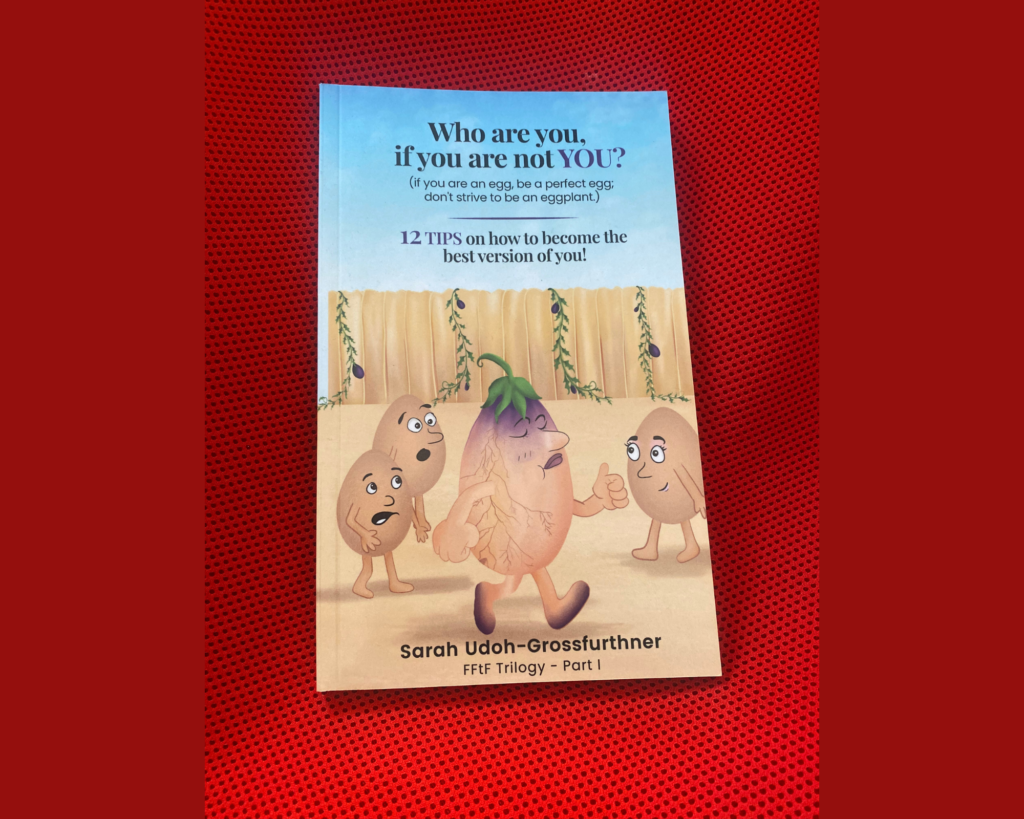
FAB: In “FROM FEARFUL TO FIERCE,” you explore the theme of courage and resilience in the face of adversity. What do you believe self-knowing is the true source of strength and that it empowers individuals to overcome their fears?
Sarah Udoh-Grossfurthner: Knowing yourself! Everything starts with knowing yourself. For example, I am a woman of faith, who fears God. When I deal with anything from that angle, from the point of knowing I am a woman of faith who fears God, I know that I can overcome whatever life throws at me. I am also able to deal with issues differently from what my initial reaction would have warranted.
FAB: You’ve had the opportunity to speak at prestigious events and conventions. And writers sometimes claim that oral communication is not their strong suit. How do you approach public speaking?
Sarah Udoh-Grossfurthner: When people see me, they think I am an ‘out there’ person, but I get so nervous before I speak. When I go on a podium to speak, for the first few minutes I feel knots in my belly. What works is to really know your subject matter; it gives you confidence. After the initial nervousness, you know what you’re speaking about, and everyone is looking at you. When I go to talk, I do my research to be sure that the things I say are facts. I also pray. Like I said, I do nothing without my faith. So, I pray. I pray not just because I want to speak successfully, but because I want the things I say to bless people.
FAB: Your feature in TIME magazine brought your writing to a global audience. How has recognition on such a prominent platform impacted your career as a writer, and what are your aspirations for the future as you continue to share your unique and thought-provoking literary voice with the world?
Sarah Udoh-Grossfurthner: The feature was such a surprise. I saw it as a gift from God. It was an analysis of the UK not being a monetary member of the European Union. When they accepted it, I was over the moon with joy. For my aspirations, I’m just going to keep writing. I always say that if I didn’t write, I wouldn’t know what I else to do because writing really is one of my closest friends. It heals me, it allows me to think, it paves the way to share my thoughts unapologetically and fearlessly. Writing just makes a difference. It has been and will always be. It gives me joy to be able to put my thoughts on paper and let them just sit there, like a mother observing and adoring her baby. The plan is to keep writing and keep putting them out there, hoping that people who pick them up learn something from them.
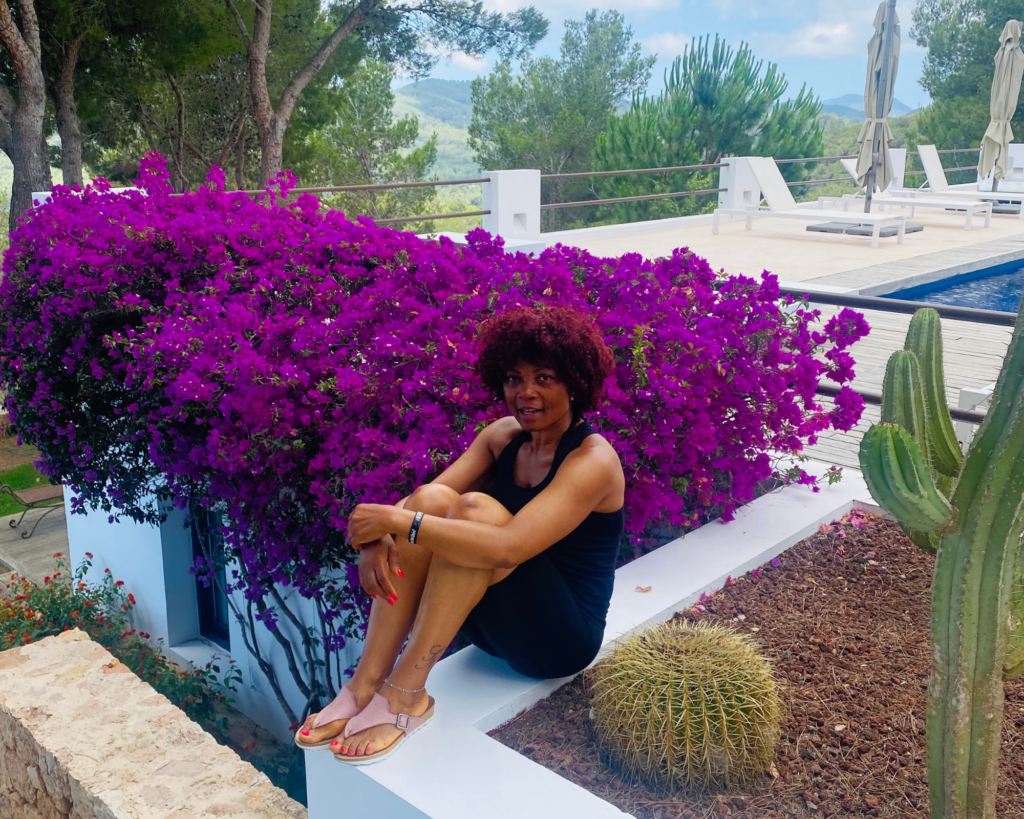
Fun Zone: FabFastFive
- FAB: If you could time travel, would you visit the past or the future?
Sarah: Past: If you don’t know your past you can never fully understand your future. Most importantly, past because I would love to give my mother one last hug before she died if I knew she was going to die when she did. - FAB: Sunset or Sunrise
Sarah: Both. For many reasons. You can’t fully appreciate one if you don’t have the other. - FAB: Your favourite makeup product
Sarah: Lipgloss and neon blue eyeshadow - FAB: Beach or Hiking
Sarah: Hiking - FAB: If you could collaborate with any writer, who would it be?
Sarah: Bill Bryson: he is a traveller writer and my all-time favourite because his books not only entertain, they teach you as well so you come away knowing more about the world around you.


